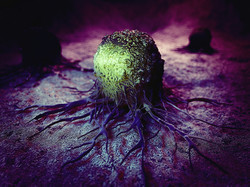Cancer: the result of a genomic ‘big bang’?
According to the well-established model of carcinogenesis, a gradual acquisition of genomic rearrangements and somatic mutations over time is required for cancer onset. Recent evidence challenges this model and indicates that it is possible to have tens to hundreds of chromosomal rearrangements take place in a single event. This phenomenon is known as chromothripsis but the molecular mechanisms that support it are currently unclear. The scope of the EU-funded BRM CHROMOTHRIPSIS (Dissecting cancer development by chromothripsis using cell-based models) project was to investigate these mechanisms in vitro by studying somatic structural variants. In this context, researchers generated human cell lines with various genetic backgrounds that were prone to accumulate persistent DNA damage. At the same time, they induced complex structural DNA rearrangements in vitro by perturbing cells with normal karyotype and they subsequently analysed their genome. In essence, this method allowed them to reproduce the catastrophic phenomenon of chromothripsis and analyse the potential mechanisms associated with such massive chromosomal breakages. Results showed that the occurrence of chromothripsis was apparent at a significant propensity in cells with specific genetic backgrounds, an observation further validated in primary human cancer cells. Taken together, the results of this project provide critical information on the molecular mechanisms behind the phenomenon of chromothripsis. The generated information lays the foundation for future mechanistic studies, which might contribute to the understanding of cancer progression. Further work into the genomic instability or mutations that trigger this phenomenon is essential to devise anti-cancer strategies.







